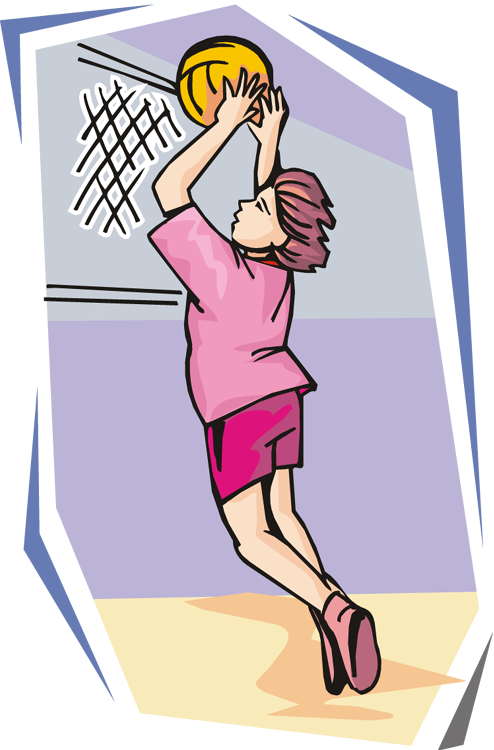
Applying Technology to Learning
among Adult Learners
Volume 4, Issue 5
July 2013
Unlimited Learning, Inc.
640 East Second Street
PO Box1273
Cortez, CO 81321
970-565-1601
Becoming a Self-Directed Learner
A student may know how to read and write well, yet not know how to use those skills to meet a need. Students may know how to compute well, yet not know how to solve math-related problems to meet their needs.
When I am asked what my goal is in teaching others, I always come to one answer, no matter what the population: to help people become self reliant, or independent, in meeting their goals. Of course, that doesn't mean that I want students to become isolated from others. On the contrary, I want them to know how to use resources and how to partner with other people to learn what they want. Self-directed, or independent learners have the confidence and knowledge required to access the resources they need to get what they want.
The following links list attributes that describe self-directed learners from different perspectives:
- http://ictnz.com/Inquiry%20Learning/independent%20learning%20skills.htm
- http://www1.open.edu.cn/elt/8/17.htm
- http://www.eqa.edu.au/site/studentindependentlearning.html
- http://www.brookes.ac.uk/services/ocsld/resources/independent.html
As you read through the lists, consider the extent to which you encourage students to develop those skills in your teaching. Consider how you might encourage them to do so even more.
Of course, the topic of motivation always arises when educators discuss the low achievement of students who have not become independent learners. How often have you heard or said, "Chris just isn't motivated; we need to do something." Can anyone motivate someone else to become an independent learner? Do you, as an instructor, consider it you job to motivate your students?
“The great entrepreneurs I know work incredibly hard at creating environments that are motivating. They don’t pound away at the specific task of “motivating people”, rather they pay attention to creating context, removing barriers, being supportive, putting the right people in the room, and leading by doing. All of these things create a context in which people are motivated.” (Brad Feld, investor, entrepreneur and co-founder of Foundry Group, 2012)
"Just as you can't motivate a seed to grow (you can only provide an appropriate environment that will allow it to grow), you can't motivate people. They motivate themselves." (http://www.aleanjourney.com/2011/08/you-cant-motivate-people-but-you-can.html)
The article below by Analytic Technologies discusses different theories of motivation, and there are many.
http://www.analytictech.com/mb021/motivation.htm
If you Google different keywords on the topic of motivation, you'll find dozens of sites that propose to tell you how to motivate people at school or at work. As you assess the validity of all of that advice, consider whether anyone else has ever been responsible for motivating you to do something that you didn't want to do.
I can't find a single instance in my very long life to support the idea that someone else motivated me to do something. Eventually, everything I have done has resulted from my wanting to do it. I may decide to do something unpleasant to achieve a higher reward, but it is always my decision to voluntarily do anything. For example, my parents and teachers did everything in their power to motivate me to be a good student in my early school years. They didn't succeed. I hated school, it made no sense to me, and I couldn't even make myself perform, no matter how much I wanted to please everyone. I had to get to graduate school to finally turn on my own light and start motivating myself to becoming the four grade-point average student that completed her Master's degree.
What was missing in me prior to becoming the independent learner that I eventually became? One ingredient, and one ingredient only: ignorance about my own learning abilities. Some might call it lack of confidence stemming from lack of self knowledge. Because of my poor early school performance, I thought I was a poor learner. (Never mind that I was a capable athlete and musician.) I thought that others were smarter and better students by nature, so I labeled myself as a poor student. However, I really wanted to complete my Master's degree in order to teach in college. I bit the bullet and enrolled in a Master's program as an adult, years after completing my B.A. by the skin of my teeth. As a grad student and teaching assistant, I looked around and noticed that the best students weren't performing any better than I. I discovered that by simply listening to lectures, reading and digesting the materials, and trusting my views in reports and on tests, I got A's all over the place. I didn't have to regurgitate the "right" answer. All I had to do was to defend my opinions properly and work out challenges as the came. I became an independent learner!
As I look back, yes, I had great models. My parents were both educators with advanced degrees who expected the most out of me. I had teachers whom I admired. I took a few subjects that I enjoyed. However, none of those motivated me. I eventually became educated to the extent that I desired because I wanted to, not because someone pushed my buttons.
When I hear students say, "I'm here because I have to be," I smile. Students enroll because they want to. Perhaps they want to because they would rather not go to jail, or be punished by their parents, or live in poverty, or have others regard them as uneducated. Whatever their reasons, they enroll because they want to enroll. No one is making them do it. Self-reliant learners recognize that they have choices and that those choices have consequences. We can notice our choices by observing our adult lives!
What can we educators do to nurture self direction in our students' lives? The first set of articles linked in this issue provide good ideas. Following are just a few specific suggestions:
1. Implement activities that support self-awareness of strengths and skills. (We've discussed SMART goals in a previous issue.)
- http://www.relaxfocusenjoy.com/5-fun-goal-setting-activities/- Fun goal-setting activities! Adapt to your students. Goal setting can provide excellent avenues to help students recognize that they are living the results of their choices. They are not victims. That's a powerful recognition!
- http://surfaquarium.com/MI/intelligences.htm - Enjoyable exploration of Multiple Intelligences.
- http://www.dailywritingtips.com/resume-writing-tips/ - Resume writing tips. Resume writing can be an excellent exercise in self-discovery.
2. Teach academic concepts through real-life applications
- http://khake.com/ - Super-duper, extensive site for all career exploration with related activities!
- http://www.mathalicious.com/ - Real-life math!
- http://www.stageoflife.com/education/WritingPrompts.aspx - Writing prompts that relate to writers themselves.
- http://frugalfun4boys.com/2013/05/19/eight-real-life-ways-to-get-kids-writing/ - Great writing ideas to get young kids started. Adapt them to your adults!
- http://www.realworldmath.org/- Bound to engage!
3. Provide learning activities that are enjoyable and entertaining. I've shared some of these in past issues.
- http://freerice.com - Addictive. Beware!
- http://www.merriam-webster.com/quiz/index.htm - I find this site equally addictive, from Mirriam-Webster although they don't send rice to the needy.
- http://kidshealth.org/kid/htbw/htbw_main_page.html - Great for ESL. Ignore the "kid" part.
- http://brainden.com/logic-puzzles.htm - Logic puzzles with answers.
- http://americanhistory.si.edu/anatomy/bodyparts/nma03_bodyparts.html - Test your anatomy knowledge.
- http://www.teachervision.fen.com/puzzles/games/54724.html - Choose those that fit your adults.
- http://www.nobelprize.org/educational/medicine/ - One of my favorite. Read through the resources, and select.
- http://www.esolhelp.com/classroom-jeopady-games.html - For ESL
- http://teach.fcps.net/trt10/PowerPoint.htm - Make your own Jeopardy games!
4. Have students read about the characteristics of independent learners and reflect on them in terms of how they see themsleves. They might even want to plan a few activities to add tools to their learning toolbox.
5. Facilitate reflection and critical thinking. Don't dictate solutions.
6. Listen, listen, and listen to their stories and ideas. Then listen again.
7. Don't blame yourself or them when it doesn't go your way. It will always go their way. Sometimes, their way matches yours; sometimes it doesn't!
______________________________________________________________________________________________
Free or Inexpensive Resources
Teacher Site
I received an email last week from a teacher, Julia, part of which follows:
"I'm a struggling retired teacher over here putting together my first web site. I was just wondering... could you please take a quick look at my web site and see if it meets your standards for a future issue of Tech Tips. All of my materials are free and aligned to the core curriculum." Julia, Retired Middle School Math Teacher, Mom of 3, Grandma of 4, and Tired
http://www.mathworksheetsland.com/
Well, Julia, if this is your first Website, I'm very impressed, and you don't sound tired to me! Keep up the good work, with our thanks for the very helpful resources!
Florida TechNet
This site has a number of free resources that "Explore...Engage...Expand. Check it out.
http://www.floridatechnet.org/
Computer Tips and Tricks
A. Sometimes, you want to get to your desktop quickly, without minimizing all of your open programs. Windows does have a very small box on the desktop, to the right of your bottom menu options. However, if you want to use a quick shortcut, simply press Windows + D , which will take you right to your desktop!
B. Ever hit the caps key by mistake or want to use caps instead of lower case letters in your work? Highlight any text in Microsoft Word on a PC, and press the shortcut key Shift + F3 to change the case of the highlighted text. Pressing this key once will uppercase all highlighted text, pressing the shortcut again will make the text all lowercase, and then pressing the shortcut again will give the text proper case.
C. You are in a hurry to check the definition of a word you are using in your email or other document. If you keep your Web browser open all of the time, as I do, simply use the Google search tool, which I keep open all of the time. Type in "define (the word your are searching)" and a definition will show up immediately. For example, type in "define archaic," and the definition immediately shows up:
- Very old or old-fashioned.
- (of a word or a style of language) No longer in everyday use but sometimes used to impart an old-fashioned flavor.
obsolete - antiquated - old - ancient - out-of-date Brain Challenges
(You might want to post these on a wall for students to interpret! Encourage them to develop their critical-thinking skills. Post riddles and other puzzles on walls, too.)
A. What phrases do the images represent?
1.
2.
B. Magic Triangle: Write the numbers 1 through 6 in the circles,using each number once, so that the total you get by adding the numbers along each side always comes to 9.
_______________________________________________
Send us your ideas, contributions, and requests! We want to meet your "tech-knowledgy" needs! Use the Contact information below.
_____________________________________________







